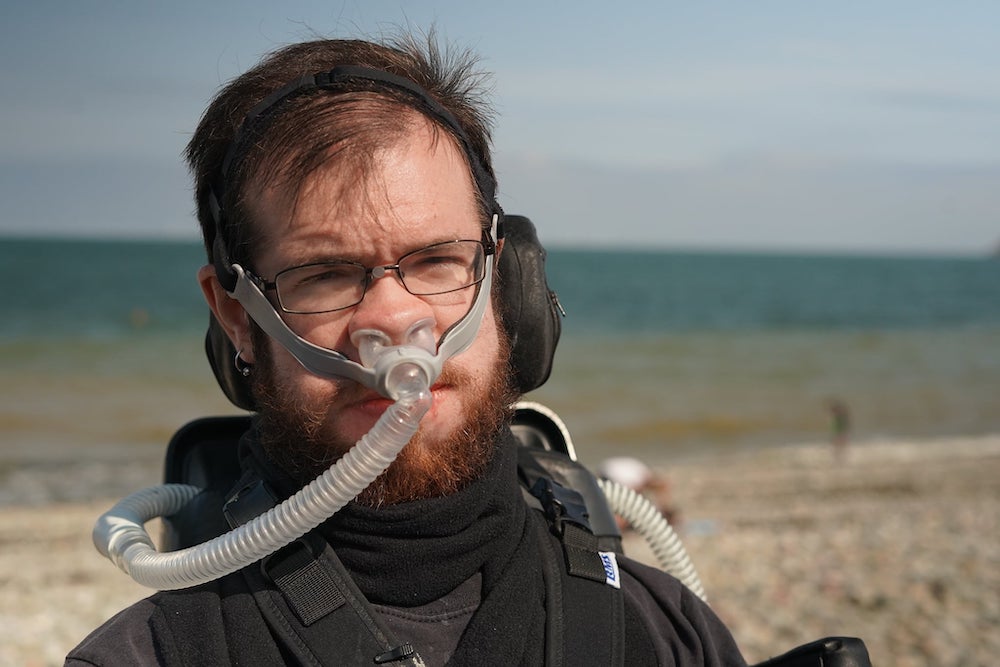
In the latest of a series of perspectives on the role of a cognitive rehab assistant, Amber Allen at BIS Services shares the many facets to the roles, the challenges along the way, and the significant job satisfaction
Before meeting a client, I have always found it helpful to touch base with an existing member of the team. This can vary for each client – for example I have been introduced by speech and language therapists, physiotherapists, and other rehabilitation assistants (RAs) – however this is usually done by the case manager.
In my experience, it has always been helpful to meet the team outside of meeting the client, so that any support needs, important information, or triggers can be discussed honestly. This way, I can adjust my presentation and put my best foot forwards, increasing chances of successful meet and greet. It has also proved reassuring to some clients that I’ve met with the rest of the team before meeting with the client.
I have found the meet and greet one of the most crucial parts to a successful professional relationship. The first impression genuinely does count, and it has benefitted me to present well, arrive with as much information as possible, and to have a good idea of how I can appease to the clients’ interests and expectations. I always ask as many questions as possible, both about what the expectations and goals are from the rehabilitation, but also about the client themselves. Asking about hobbies, family, interests, work and lifestyle, can all be helpful for rapport building and creating a more relaxed atmosphere for the meet and greet itself.
Working with a multi-disciplinary team (MDT) can often be intimidating, particularly for new RAs or those new to a role like this. Fortunately, I was not new to MDT work, so I knew what I could expect in terms of structure, support, and who to turn to when in need. In particular, I have found working closely with a therapist from the MDT to be incredibly helpful and valuable. This is both in terms of being introduced to the client, working in accordance with the MDT goals, and being able to receive regular supervision.
Supervision is not only useful for RAs in lone working, for a psychological benefit, but is also helpful for aligning goals, directing energy, and prioritising tasks. Examples of times that I have found supervision useful include a client who was having difficulties engaging in rehab, ending sessions with clients, and supporting a client to sensibly prioritise their goals. When compared with having a list of guidelines to work from, regular supervision and contact with the MDT can make RAs feel much more empowered, directed, supported, and improve our work. I also feel it allows to ‘share the load’, reducing stress, risk of ‘burn out’, and allowing for better progress.
Similarly, being included in MDTs not only makes the RA feel part of the team but allows for greater clarity into the rehab sessions. For example, while I have detailed reports to fill in at the end of each session, important information or events can be better explained or discussed as a group.
As a cognitive rehabilitation assistant we can face many challenges, as we are often the ones having the most contact with the client. A particular challenge is unrealistic expectations of rehab, both from the MDT, the client, and the family. For example, a client’s family may want them to ‘get better’ soon, and for progress to be made quickly. It can be tricky for the family to understand the changes that occur after someone has had a brain injury. With that, it can be difficult to support the family in understanding that progress is gradual and rarely linear. Family can feel that regressions – however temporary – or setbacks are a sign that rehab is not working, or that the person cannot be helped. Even if these are usually brief ‘bumps’ in recovery that are caused by excess fatigue levels or other temporary factors, it can cause huge anxiety in the family.
Of course, family dynamics often affect the person with the brain injury, whether that is a man who feels he needs to fulfil his role as a father, an adult child who wants to be independent again, or a woman who wants to be a ‘better’ mother. Pressures felt within the family dynamic can cause a client to have expectations that are beyond their – or anyone’s – reach. This can put pressure not only on the client to ‘get better’, but on the RA and the MDT, to work harder, look for different outcomes, or ‘try harder’.
Unfortunately, it can be incredibly difficult for clients to realise, or understand, that some goals are not achievable, or that the capacity of the team around them is capped. Regardless of if these expectations come from external pressure, anxiety around identity, or deficits in logical reasoning, a client with extremely high expectations can be very hard for an RA to manage. An RA is often the bearer of bad news, the holder of boundaries, and the first person to hear these expectations. Given the limitations around the RA role, it is crucial to have the MDT working in harmony around the client in order to support these expectations and guide the client as best as possible.
On the opposite end, clients or families who have signed up for rehab, but not bought into the process, can be just as challenging. A client who maintains that they want to remain with an MDT and an RA, yet is nearly impossible to engage with, can present a whole host of challenges. As an RA who is assigned to support the rehab process, it can be incredibly frustrating to have a client who is capable of rehab yet does not engage for a myriad of reasons.
Despite the frustration that may be felt amongst the MDT, it is important to have an agreed way of supporting or encouraging engagement. For example, an agreed strategy amongst professionals for initiating contact, following through with this, and reminding the client of the purpose of rehab. As an RA, in this instance it is importance to remember the purpose of rehab, maintaining the relationship with a client, and the role that consistency can have in promoting wellbeing. While it is okay to acknowledge the frustration and difficulties that non-engagement can bring, it is crucial to avoid becoming resentful or demotivated towards the client.
In my experience as an RA, I have seen the benefit that clear goals and steps towards these goals can have. Goals are also emotionally beneficial, often giving clients a sense of hope, and a sense of control over their life. Many clients, particularly after a brain injury, report feeling out of control. Those who have had a traumatic accident or illness can feel that their life has changed overnight, deviating from their life plan and what they wanted for themselves. This can be very disorientating, upsetting, and anxiety inducing.
The feeling of being lost or out of control is very upsetting. I have found that in working with brain injured clients, establishing goals and continually re-referring to these can be very grounding, reassuring, and lead to positive progress. It may not be quick or linear progress, but continuing to work in line with the agreed goals gives a sense of guided, productive and rewarding neuro rehabilitation.
Goals are usually successfully set amongst the MDT, with both professionals, family, and the client agreeing on what we are working towards. This can be a variety of things, such as returning to work, pursuing a certain type of exercise, developing skills, or simply establishing a clear daily routine. For example, setting a goal of returning to college can give a client a sense of purpose and direction, as well as organise the MDT to pick up tasks according to their remit to best support the client. In some occasions, the MDT can set goals away from the client – for example, in how to respond to a client who continually disengages or cancels sessions, or how to respond to inappropriate questions. The family may also agree goals with the MDT – for example in how to support a client’s daily routine or home life.
Part of successful goals are clear and realistic expectations of what needs to be done to get there. Unfortunately, the nature of brain injury may mean that some people are very distressed at perceived lack of control or hopelessness. This can result in incredibly high expectations for both themselves, the MDT, and their rehabilitation assistant. Often, these unrealistic expectations are very difficult to manage both practically and emotionally. Perceived failure to meet these expectations can cause anger or distrust towards those around the client, and can cause frustration amongst the MDT. It can be incredibly damaging for a working relationship, and may even cause complete breakdown of these relationships.
Here, I have found it beneficial to be firm in setting realistic steps from the start. This may be as simple as saying: “I cannot guarantee that this will happen, but we will do these actions to try as much as we can to make it happen”. Sometimes it is necessary to deny a goal as it is not achievable, and to steer towards a similar yet realistic goal. For example, if a client wishes to return to work, but is not able to manage their fatigue in day-to-day life, it may be more appropriate to decide on a return to volunteering first, or gradual return to work. This can be used as a stepping stone to the main goal, or a compromise of what is achievable.
As a cognitive rehabilitation assistant, you will often need to use the positive rapport you have built with your client, along with some creative thinking, to best support them. Across my 18 months of working as an RA, I have been pushed both in my creative thinking skills, but my flexibility, adaptability, and resilience. There have been many obstacles pushed my way, both in engaging with a client and supporting their rehab. I have had to learn to reach out to my professional network to share ideas, learn from each other, and agree tasks.
As well as this, I have had to develop my skills in not only building a rapport, but keeping this going. Often, this can involve in tapping into different aspects of my personality, building on what I can in order to create a productive positive relationship, based in mutual trust, support, and consistency. I truly believe that the skills I have developed through working as an RA had allowed my success with the BIS Services, and have set me up with foundation skills for the future.
I thoroughly enjoyed the creative challenge that working as a cognitive rehabilitation assistant posed, and would recommend this role to anyone looking to work in neuro-psychology.










